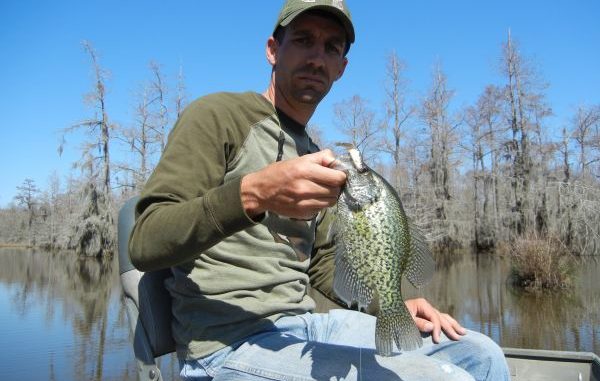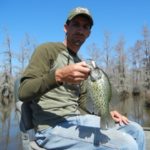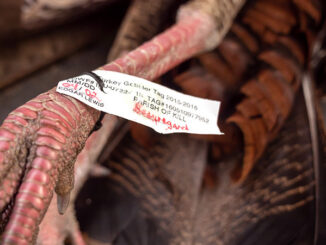
Myths are hard to stifle
Isn’t it strange how some myths and misinformation seem to enjoy immortality? Some myths arise regularly, just to confirm they are still out there waiting for the perfect opportunity to create fresh confusion.
During my 34-year career, I knew of several myths that could be relied upon to get the rumor mill spinning at the same time every year — and I got pretty good at predicting almost to the day when the rumors would start.
My favorite involved the postponement of the opening of hunting season due to the threat of fire arising from dry conditions. This one got going every year without fail on the Thursday or Friday before the Saturday opening of squirrel and rabbit season.
I finally got in the habit of sending emails to all enforcement personnel on the Monday before opening weekend to advise they could expect “Is it true?” calls from the public toward the end of the week and to assure the callers there was no season postponement. The other staff members loved it, and some of us made bets on when the first call would arrive.
So with the best and most-popular fishing months just ahead, let’s have a go at some of the most-common myths and misunderstandings related to fishing. Let’s get the oldest one out of the way first.
Myth: It is illegal to use goldfish for bait.
I have often wondered where or how this one began. Maybe it was illegal at one time, a very long time ago.
But it was not illegal at the time I began my employment with the LDWF, and none of the older agents could remember it ever being so, although they were well aware of the myth.
Fisheries biologists could offer no explanation, and research of old regulations divulged no such prohibition.
Whether it was ever actually prohibited is subject to speculation, but one thing is for sure: It is deeply rooted, alive and well.
Some people so strongly believed it to be true that they would hotly disagree when told fishing with goldfish was not illegal. To those I simply handed a fishing regulations booklet and asked them to please find the goldfish ban for me, since none of us on the job could.
I’m still waiting.
Do goldfish make good bait? Can’t say, having never used them or seen anyone else using them. But I have heard some people like goldfish for crappie fishing and on trotlines for catfish.
Where such quantities of goldfish could be found and at what cost (along with the mythical illegality) might be why they are seldom used.
But since minnows can be had for 12 cents each and worms cost me nothing, I’ll stick with those.
Myth: It is illegal to use bream for bait.
It is no real mystery why bream are believed to be illegal for use as bait. They are wild native game fish regulated, protected and prohibited from being sold.
So it isn’t much of a leap to arrive at the assumption they may not be used as bait.
In truth, they are legal and highly effective for catfish and alligator snapping turtles. I have a friend who catches huge flathead catfish every summer using hook and line sets tied to tree stumps and baited with bream.
How the bream used for bait are caught might be more of a problem. Since they are game fish, bream may not be taken with nets or traps. The only exception is at Toledo Bend Reservoir, where a minnow trap not exceeding 24 inches in length and having a throat no larger than 1 inch by 3 inches may be used to take bream for non-commercial bait purposes.
So, unless one fishes Toledo Bend or has access to a privately owned pond where a net or trap could be used, bait bream will have to be caught on hook and line. Just go to the shallows and get some revenge on those little bait stealers; they are not hard to find.
Myth: An alligator eats its weight in game fish every day.
This one started circulating in the 1970s and ’80s when wild alligator populations were rapidly recovering under federal protection.
As fishermen began to see more and more gators in their favorite fishing spots, the level of suspicion and concern increased. Naturally, if the fishing slowed down and a few days went by without anyone catching very many, the gators were blamed for eating all the fish.
The slower the fishing, the more the gators were blamed.
It wasn’t long before the gators were accomplishing the amazing feat of consuming their own weight daily and devoutly adhering to a strict diet of game fish. I guess they turn their noses up at non-game fish, turtles, snakes, frogs, nutria and anything else biologists were fairly sure gators consumed.
Alligators are in abundance, and I wish the LDWF would allow an increase in the harvest of wild alligators. And I know those who believe the “weight in game fish every day” myth will never believe otherwise. So there is no use in arguing.
But having spent a little time hanging around the agency’s alligator research facilities, I can say with certainty that research gators held in captivity were fed once a week. They were not fed game fish, but rather ground nutria meat — and it was eagerly consumed.
And the quantities were nowhere near their body weight, even though it was only once a week. Those gators did just fine.
Final thoughts
The other day, I heard a fisherman say grass carp have a voracious appetite that allows them to consume their weight in aquatic weeds daily. I can’t prove or disprove that one, having never asked an expert how much grass a carp will eat in a day.
Since most fishermen think that would be a good thing, we will leave it alone, though I have doubts. Party on, grass carp!
LDWF’s fishing regulations publications, and online information and regulations are thorough and comprehensive. Taking the time to read them will help to dispel many of the myths and misunderstandings associated with fish and wildlife regulations.
If you are unsure about a regulation, be sure to look it up and get the correct information. Assuming word-of-mouth information to be correct has gotten a lot of hunters and fishermen in trouble.
If what you are looking for can’t be located in the published regulations, contact any of the LDWF field offices. Your call will be directed to the appropriate person who will be happy to help.




